Search
Search Results
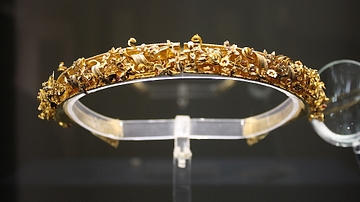
Image
Gold Diadem, Canosa
A gold diadem with carnelian and garnets from Canosa, Bari, southern Italy. 3rd-2nd century BCE. (Archaeological Museum of Taranto, Italy)
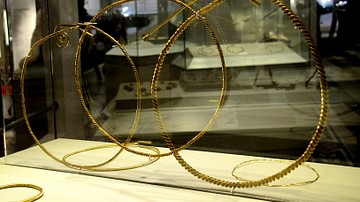
Image
Gold Torcs from Ancient Ireland
Three gold torcs, found at Tipper South, Co. Kildare, Ireland, 1200-1000 BCE.
National Museum of Ireland-Archaeology, Dublin.
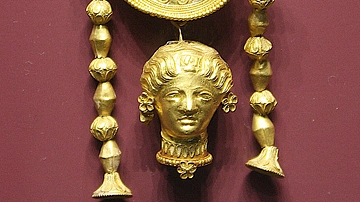
Image
Gold Earring, Tarentum
A gold pendant earring from Tarentum (Taranto), southern Italy. 4th century BCE. (Archaeological Museum of Taranto, Italy)
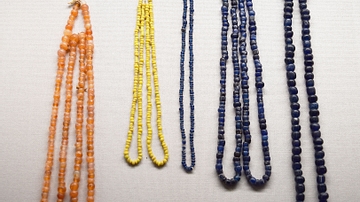
Image
Japanese Beads from the Kofun Period
These beads come from Japan and date from the Kofun period (250-538 CE) in Japanese history. In the Kofun Period beads of various shapes and materials were worn as fashion accessories, used in rituals, and buried in tombs. They include, for...
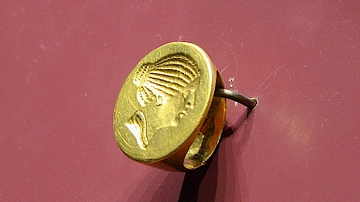
Image
Gold Ring, Tarentum
A gold ring with female head from Tarentum (Taranto), southern Italy. 4th century BCE. (Archaeological Museum of Taranto, Italy)
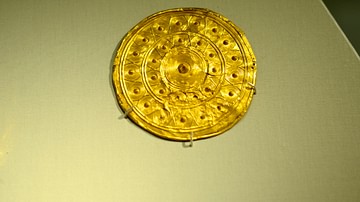
Image
Gold Disc from Ancient Ireland
Gold disc, most likely a terminal of a collar or part of an earspool, from Co. Armagh, Ireland, 800-700 BCE.
National Museum of Ireland-Archaeology, Dublin.
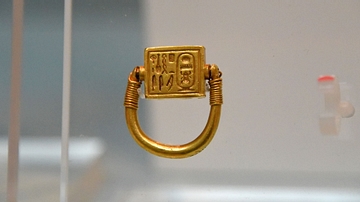
Image
The Ashburnham Ring
Gold ring with the name of Thutmose III and epithets: "Menkhperra beloved of Ptah beautiful-of-face'. The verso has the Two Ladies name of the king: "Great of Terror in All Lands". The ring was found inside the tomb of Djehuty. From Saqqara...
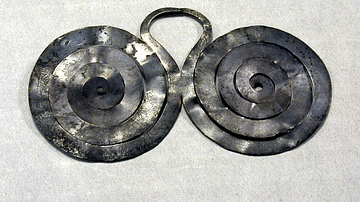
Image
Mesoamerican Silver Nose Ornament
A hammered silver nose ornament from Mesoamerica. Colima or Mixtec, 12-14th century. (Metropolitan Museum of Art, New York)
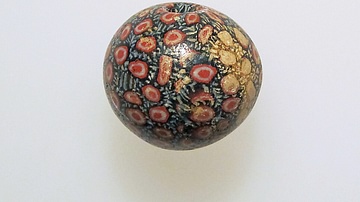
Image
Mosaic Glass Bead from Roman Egypt
This 1st Century CE Millefiori-formed glass bead from Alexandria, Egypt is a part of the collection at the Metropolitan Museum of Art, New York. On its surface is a complex and beautiful pattern of multi-coloured stars, stripes and flecks.
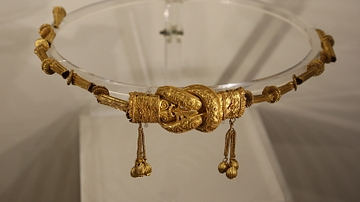
Image
Gold Diadem, Tarentum
A gold diadem with central knot of Hercules from Tarentum (Taranto), southern Italy. 4th century BCE. (Archaeological Museum of Taranto, Italy)